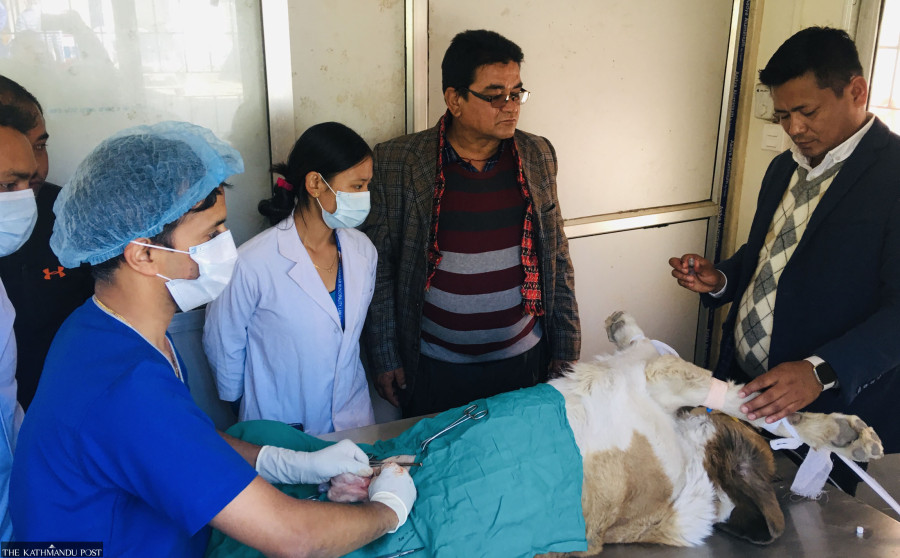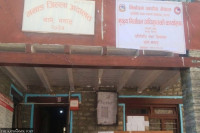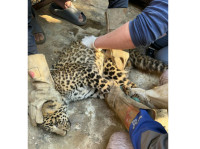Gandaki Province
Campaign launched to sterilise stray dogs in Besisahar
Authorities in Besisahar underscore the importance of sterilisation and vaccination to control stray dog population and protect people from rabies.
Aash Gurung
The annual campaign to sterilise stray dogs and cats and administer them with anti-rabies vaccines started on December 15 in Besisahar Municipality, Lamjung.
The campaign was initiated last year after disturbing reports of local residents brutally beating strays began surfacing with increased frequency, said Dr Rupesh Shrestha, a senior veterinarian at the Veterinary Hospital and Livestock Service Expert Centre.
The Veterinary Hospital and Livestock Service Expert Centre in Lamjung, Besisahar Municipality and Central Referral Veterinary Hospital jointly organised a two-day sterilisation camp to sterilise the dogs and administer them with anti-rabies vaccines last week.
“The sterilisation camp was organised to control the number of stray dogs and the possible threat of rabies,” said Hari Bahadur Dhital, chief at the livestock and fishery unit of Besisahar Municipality. According to him, veterinarians conducted sterilisation of 134 dogs—72 males and 62 females—and seven cats and administered anti-rabies vaccines to them on Wednesday and Thursday.
The authorities in Besisahar underscored the importance of sterilisation and vaccination to control the number of stray dogs and protect people from rabies as opposed to brutally beating them up to rid the community of strays.
The technicians used a net to trap stray dogs and took them to a sterilisation camp in a ‘dog ambulance’.
Dr Rupesh Shrestha, a senior veterinarian at the Veterinary Hospital and Livestock Service Expert Centre, said sterilisation is the most effective and scientific way to control the number of stray dogs.
“The number of stray dogs and cats will come under control through sterilisation. And there will be no threat of rabies after the animals are administered anti-rabies vaccines,” said Shrestha.
Two years ago, a child died after a rabid dog bit him in Besisahar, the district headquarters of Lamjung. A woman had also been a victim of rabies in Besisahar a few years ago. Following the rabies-related deaths, the local residents started beating the stray dogs to death.
Animal rights activists had questioned the brutality with which strays were killed in various places across the country in the past in the name of controlling the number of stray dogs and saving people from rabies.
“We started organising a sterilisation camp last year to contain the brutality against stray dogs,” said Shrestha. According to him, a total of 193 dogs and cats were sterilised last year in Besisahar.
According to Shankar Pandey, a doctor at the Central Referral Veterinary Hospital, around 99 percent of rabies-related deaths are caused by dog bites so it is imperative to control the number of stray dogs but it should be done in a humane manner.
“Rabies can be a serious public health issue but if dealt with care, the dogs won’t harm the human population. We must vaccinate as many strays as possible with anti-rabies vaccines,” said Pandey, suggesting that all people administer their pet dogs with anti-rabies vaccines.
According to veterinarians, sterilisation is one of the sure ways to control the stray population.
“There is no alternative to sterilising stray dogs to control rabies. One should also be careful of contact with wild animals like jackal, fox and wolf to protect themselves from rabies,” said another veterinarian Dr Arjuna Aryal, adding that Nepal is committed to slashing rabies-related deaths to zero by 2030.




 9.7°C Kathmandu
9.7°C Kathmandu.jpg)











